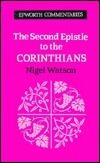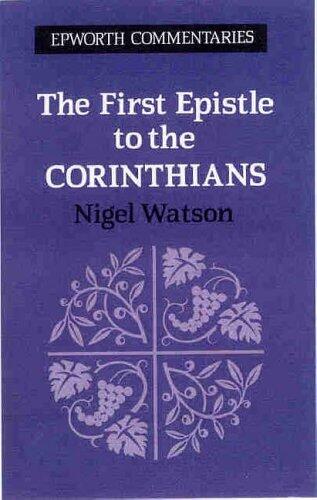
Epworth Commentary #Other, The New International Commentary on the New Testament #Other, New International Greek Testament Commentary #Other
The Second Epistle to the Corinthians
لا توجد تقييمات بعد
Religion & Spirituality
History
تنسيق
غلاف ورقي
صفحات
152
لغة
الإنجليزية
منشور
Jan 1, 1993
الناشر
Epworth Pr
رقم ISBN-10
0716204878
رقم ISBN-13
9780716204879
الوصف
In this insightful exploration, Nigel Watson delves into the complexities of the Second Epistle to the Corinthians, originally penned by Paul the Apostle. The author brings to light the rich historical context and theological insights embedded within the text, shedding new light on the challenges and tensions faced by the early Christian community in Corinth.
Watson meticulously examines Paul’s intent, addressing issues of leadership, reconciliation, and the powerful theme of grace. The narrative reveals the emotional depth of Paul’s relationship with the Corinthians, illustrating both his frustrations and his enduring commitment to their spiritual growth. Through a careful analysis of the epistle's rhetoric, Watson articulates how Paul navigated his role as a mentor and apostolic authority amidst a backdrop of conflict and misunderstanding.
Overall, Watson's work offers a captivating journey through a foundational piece of Christian scripture, inviting readers to reflect on its enduring relevance and the profound lessons it holds for contemporary faith communities.
Watson meticulously examines Paul’s intent, addressing issues of leadership, reconciliation, and the powerful theme of grace. The narrative reveals the emotional depth of Paul’s relationship with the Corinthians, illustrating both his frustrations and his enduring commitment to their spiritual growth. Through a careful analysis of the epistle's rhetoric, Watson articulates how Paul navigated his role as a mentor and apostolic authority amidst a backdrop of conflict and misunderstanding.
Overall, Watson's work offers a captivating journey through a foundational piece of Christian scripture, inviting readers to reflect on its enduring relevance and the profound lessons it holds for contemporary faith communities.
